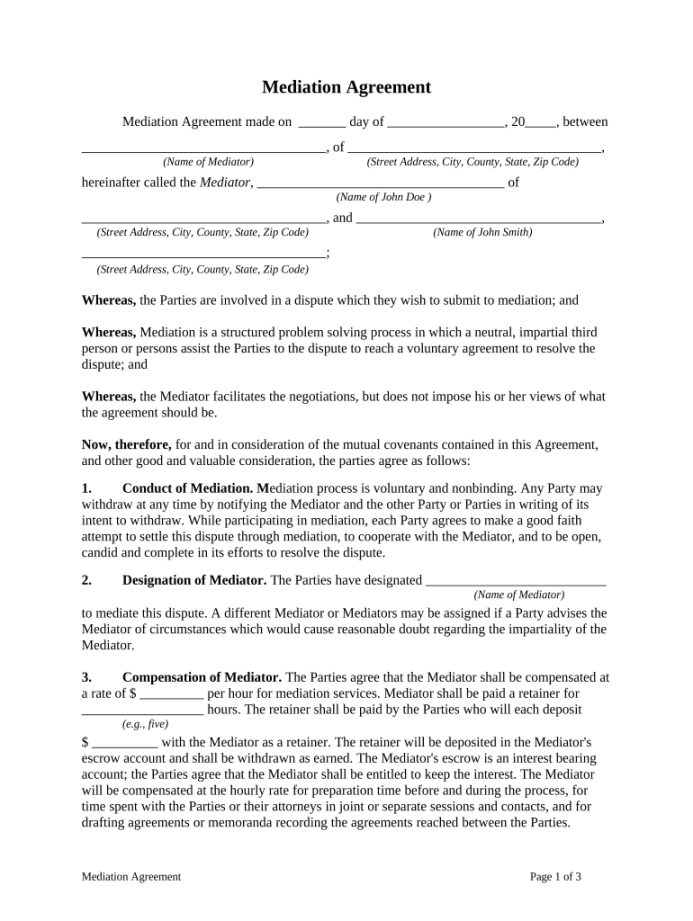Understanding the Importance of a Well-Drafted Workplace Mediation Agreement
A workplace mediation agreement is a crucial document that outlines the terms and conditions under which parties involved in a dispute agree to participate in mediation. It serves as a roadmap for the mediation process, ensuring that all parties are on the same page and that the process is conducted fairly and efficiently.

Key Elements of a Professional Workplace Mediation Agreement Template
1. Parties Involved: Clearly identify all parties involved in the dispute, including their names, titles, and affiliations.
2. Scope of the Dispute: Define the specific issues or claims that will be addressed during the mediation process. This will help to keep the focus on the relevant matters and prevent the discussion from veering off-topic.
3. Mediation Process: Outline the steps involved in the mediation process, including the role of the mediator, the location and duration of the sessions, and the confidentiality obligations of all parties.
4. Confidentiality Agreement: Ensure that all parties agree to maintain confidentiality regarding the mediation process and any information disclosed during the sessions. This is essential for protecting the privacy of the parties and fostering a safe and open environment for discussion.
5. Participation Agreement: Require all parties to commit to participating fully and constructively in the mediation process. This includes attending all scheduled sessions, being prepared to discuss the issues, and approaching the process with an open mind.
6. Mediation Agreement: Specify the terms of the agreement that will be reached if the parties are able to resolve the dispute through mediation. This may include specific actions to be taken by each party, deadlines for completing those actions, and any financial obligations.
7. Alternative Dispute Resolution (ADR) Clause: Consider including an ADR clause that outlines the steps to be taken if mediation fails to resolve the dispute. This may involve arbitration, litigation, or other ADR methods.
8. Governing Law and Jurisdiction: Specify the governing law that will apply to the mediation agreement and the jurisdiction in which any disputes arising from the agreement will be resolved.
9. Entire Agreement Clause: State that the mediation agreement constitutes the entire agreement between the parties and supersedes any prior or contemporaneous communications or agreements.
10. Signatures: Ensure that all parties involved in the dispute sign the mediation agreement to indicate their agreement to the terms and conditions.
Design Considerations for a Professional Workplace Mediation Agreement Template
1. Clear and Concise Language: Use clear and concise language that is easy to understand for all parties involved. Avoid legal jargon or technical terms that may be unfamiliar to non-lawyers.
2. Consistent Formatting: Use consistent formatting throughout the template, including font size, line spacing, and margins. This will make the document more visually appealing and easier to read.
3. Professional Layout: Choose a professional layout that conveys a sense of credibility and trust. Consider using a simple, clean design that is easy on the eyes.
4. Branding Elements: If applicable, incorporate your company’s branding elements into the template, such as your logo, colors, and fonts. This will help to create a sense of familiarity and professionalism.
By following these guidelines, you can create a professional workplace mediation agreement template that effectively outlines the terms and conditions of the mediation process and helps to ensure a fair and efficient resolution of the dispute.